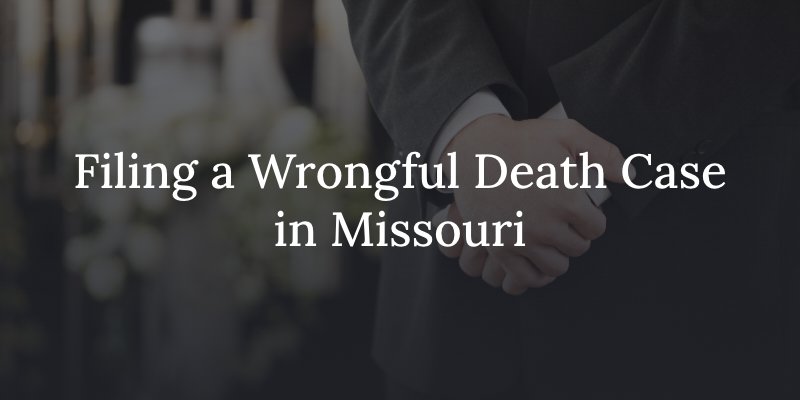When a loved one dies due to someone else’s negligence or wrongful actions, the anguish the surviving family members experience is overwhelming. Knowing that the loss was preventable if only the person at fault had taken reasonable care adds to the shock and grief of those left behind. Wrongful death claims in Missouri arise from car accidents, workplace injuries, medical malpractice, defective product injuries, and other deaths caused by someone else’s actions, including acts of violence as well as negligence.

If you’ve filed a wrongful death lawsuit to gain compensation for your loss, it won’t bring the loved one back, but it does help give them a voice for justice. A successful claim also helps relieve undue financial burdens caused by the untimely death of a family provider. The majority of wrongful death claims settle out of court through an experienced attorney’s negotiations with the insurance company of the at-fault party. If your St. Louis wrongful death attorney received a fair settlement offer for your claim, it helps to understand your options.
When Does an Insurance Company Decide to Offer a Wrongful Death Settlement?
A skilled wrongful death lawyer investigates all aspects of a wrongful death claim to determine how the death occurred and pinpoint the act of negligence, reckless behavior, or wrongdoing responsible for the death. Then they must determine the correct party to hold liable for damages. For instance, in a medical malpractice claim, the liable party could be the doctor or the hospital that used negligent administrative procedures or hiring practices. In a truck accident, the liable party could be the driver, the trucking company, or the manufacturer of a defective truck part. Once the wrongful death attorney documents evidence of liability and determines the appropriate insurance company to file a claim against, they’ll send an evidence-backed demand package to the insurance company. In a wrongful death claim, this requires demonstrating the following legal points of liability:
- The at-fault party owed a duty of care to take reasonable measures to prevent causing injury or death to others
- They breached this duty through negligence, recklessness, or wrongdoing
- The breach of duty directly caused the death
- The family members of the decedent experienced significant damages due to the death
When the evidence of liability is clear, often the insurance company offers a settlement for damages rather than risk an even larger compensation amount if the case goes to a jury trial.
What Compensation is Included in a Wrongful Death Settlement?
Depending on the circumstances of the case, a wrongful death settlement could include compensation for the following damages to the surviving family members:
- Medical expenses caused by the accident or incident before the death
- Funeral and burial expenses
- Lost income for the remainder of the working years the decedent had left
- Lost benefits such as health insurance and retirement contributions
- Grief and anguish
- Loss of consortium
The insurance company could pay the settlement amount in a lump sum or in a structured settlement that disperses money to the surviving closest family member over several years. A structured payment plan is more common when the at-fault party doesn’t have insurance and must pay out the amount over time from their personal funds.
What if The Insurance Company Won’t Settle?
If an insurance company fails to offer an ample settlement for wrongful death damages, the case may go forward to a courtroom for a judge and jury to decide as long as it’s within the 3-year statute of limitations for wrongful death lawsuits in Missouri. Kansas has a shorter time limit with a 2-year statute of limitations for wrongful death cases.
While court cases take longer than a settlement, the compensation is typically larger in a jury award for damages compared to a settlement.

